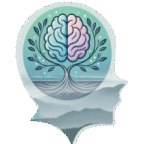By Sumiya Sami, Founder of Umeed‑e‑Sukoon
Introduction
Psychological therapy is one of the most effective ways to improve mental health, manage stress, and build resilience. Backed by decades of research, it offers practical tools for overcoming anxiety, depression, trauma, and everyday challenges. From widely used methods like Cognitive Behavioural Therapy (CBT) to advanced approaches such as Dialectical Behaviour Therapy (DBT), psychological therapy empowers individuals to foster long-term well-being and emotional balance.
👉 Source: American Psychological Association – Therapy

What Is Psychological Therapy?
How Psychological Therapy Works
Sessions usually involve one-on-one or group discussions in a safe, confidential setting. Techniques include active listening, behavioral strategies, and structured exercises.
👉 Learn more: National Institute of Mental Health – Psychotherapies

Types of Psychological Therapy Approaches
-
Cognitive Behavioural Therapy (CBT)
-
Psychodynamic Therapy
-
Humanistic Therapy
-
Dialectical Behaviour Therapy (DBT)
Benefits of Psychological Therapy
Engaging in therapy offers numerous benefits:
-
Reduces symptoms of anxiety and depression
-
Improves coping strategies for stress management
-
Enhances relationships and communication skills
-
Boosts emotional resilience and self-awareness
👉 Evidence: National Library of Medicine – Effectiveness of Psychological Therapies
Psychological Therapy for Anxiety and Depression
Therapy is particularly effective in treating anxiety disorders and depression. Techniques like CBT challenge negative thought patterns, while DBT helps with emotional regulation.
👉 Support: Mind UK – Talking Therapies
Dialectical Behaviour Therapy (DBT) in Psychological Therapy
What Is Dialectical Behaviour Therapy?
Dialectical Behaviour Therapy (DBT) is a structured form of psychological therapy originally designed to treat borderline personality disorder. Today, it is also widely applied to anxiety, depression, PTSD, substance abuse, and emotional dysregulation.
👉 Definition: Behavioral Tech – What is DBT?
How DBT Complements Psychological Therapy
Unlike other forms of therapy, DBT combines cognitive-behavioral strategies with principles of mindfulness and acceptance. This balance makes DBT particularly effective for individuals who struggle with intense emotions or self-destructive behaviors.
Core Components of Dialectical Behaviour Therapy
DBT is built around four essential modules:
-
Mindfulness – learning to live in the present moment.
-
Distress Tolerance – developing healthy ways to handle crises.
-
Emotion Regulation – understanding and managing emotions.
-
Interpersonal Effectiveness – improving communication and relationships.
👉 Details: Verywell Mind – Dialectical Behavior Therapy
Dialectical Behaviour Therapy vs Other Psychological Therapies
While CBT focuses on changing thought patterns, DBT emphasizes balancing acceptance with change. This makes it especially helpful for individuals who experience:
-
Borderline personality disorder
-
Severe mood swings
-
Impulsive or self-harming behaviors
-
Chronic suicidal thoughts
👉 Read more: Psychology Today – Dialectical Behavior Therapy
Benefits of Using DBT in Psychological Therapy
-
Teaches practical coping strategies for real-life situations.
-
Improves emotional resilience.
-
Strengthens self-awareness and acceptance.
-
Provides tools for healthier relationships.
Choosing the Right Psychological Therapy
Individual vs Group Therapy
Some people benefit from one-on-one sessions, while others thrive in group settings where shared experiences create support networks.
Online vs In-Person Therapy
With digital platforms, therapy is more accessible than ever. Online sessions provide flexibility, while in-person therapy offers a stronger personal connection.
When to Seek Psychological Therapy
Signs You May Benefit
-
Persistent sadness or hopelessness
-
Struggles with relationships
-
Difficulty coping with stress or trauma
-
Unhealthy coping mechanisms (substance use, withdrawal)
Finding a Qualified Therapist
Always ensure your therapist is licensed, experienced, and a good fit for your needs.
👉 Research: Frontiers in Psychology – Advances in Psychotherapy Research
FAQs
Q1. What is psychological therapy used for?
It’s used to treat mental health conditions like anxiety, depression, PTSD, and relationship issues.
Q2. How long does psychological therapy take?
It varies — some people benefit from short-term sessions (8–12 weeks), while others need longer treatment.
Q3. Is Dialectical Behaviour Therapy only for borderline personality disorder?
No. While it was originally developed for BPD, DBT is now widely used for depression, anxiety, and trauma.
Q4. Can I access psychological therapy online?
Yes. Many therapists and clinics now offer secure online therapy sessions for convenience.
Conclusion
Psychological therapy offers a path to better mental health, equipping individuals with the tools to handle life’s challenges. With approaches like CBT and Dialectical Behaviour Therapy, people can learn to regulate emotions, improve relationships, and build long-lasting resilience. Taking the step to begin therapy can transform not just your mental well-being but your overall quality of life.
👉 Internal Link Placeholder: (e.g., Read our guide on [mental health self-care tips])
